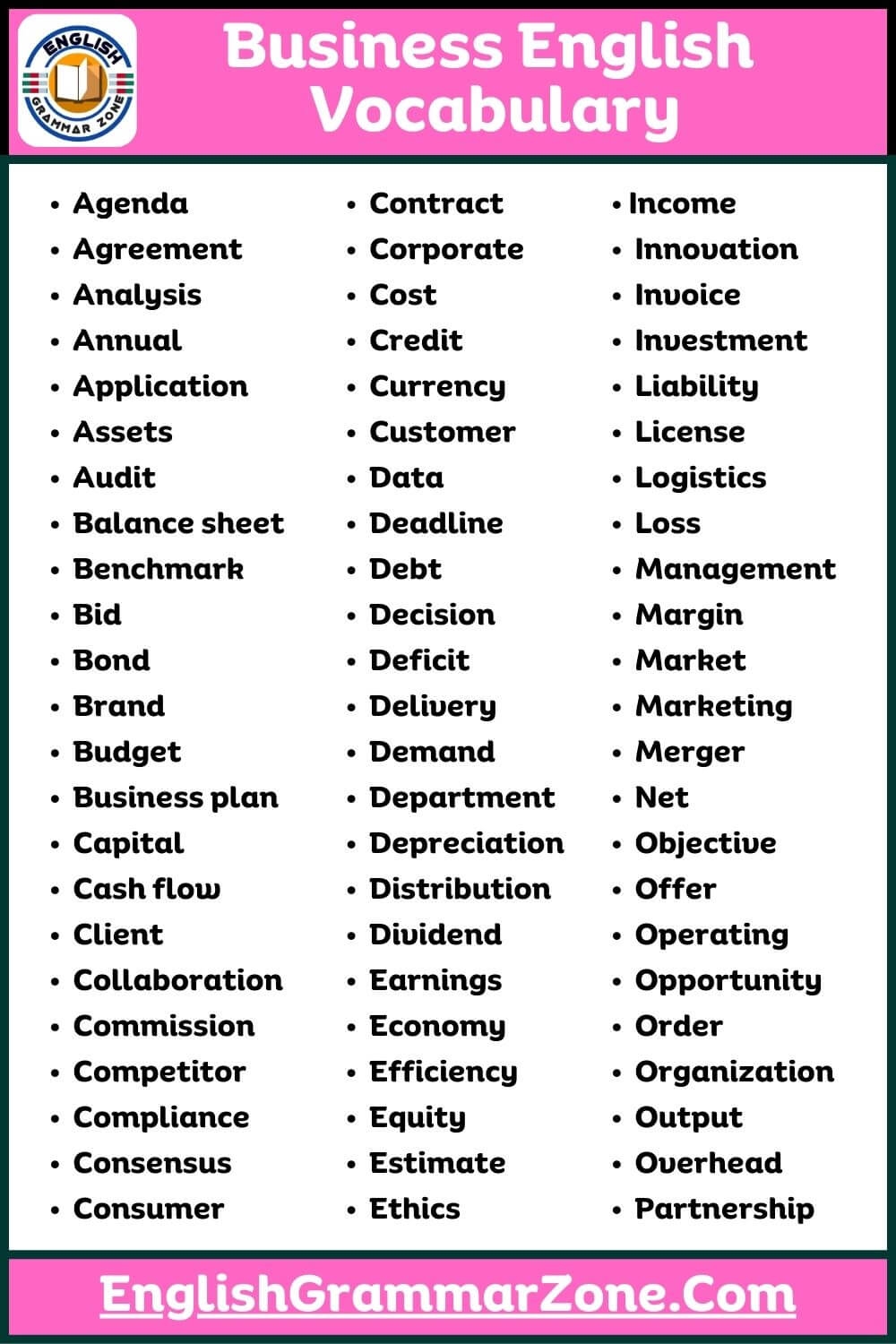In today’s globalized business world, effective communication in English is essential for success. Whether you are negotiating a deal, presenting a proposal, or simply networking with colleagues, having a strong grasp of business vocabulary can make a significant difference in your professional interactions.
This article aims to provide you with a list of useful vocabulary that will help you navigate the world of business English with confidence and ease.
Key Business Vocabulary
1. Networking: Building relationships with professionals in your industry to create opportunities for collaboration and growth.
2. Profit margin: The percentage difference between the cost of a product or service and its selling price.
3. Deadline: The final date or time by which a task must be completed.
4. Stakeholder: Any person or group that has an interest or concern in a business or project.
5. ROI (Return on Investment): A measure used to evaluate the efficiency or profitability of an investment.
Understanding and using these terms in your day-to-day business interactions can help you communicate more effectively and professionally.
Additionally, it is important to be familiar with idiomatic expressions commonly used in business settings, such as “thinking outside the box,” “getting the ball rolling,” and “cutting-edge technology.” These phrases can add more depth and nuance to your communication, making you sound more fluent and natural in your conversations.
Lastly, having a strong command of business vocabulary can also enhance your written communication skills. Whether you are drafting emails, reports, or presentations, using the right terminology can help convey your ideas clearly and persuasively to your audience.
In conclusion, mastering key business vocabulary is essential for anyone looking to excel in the world of business English. By expanding your vocabulary and using it confidently in your professional interactions, you can enhance your communication skills and build stronger relationships with colleagues and clients.
